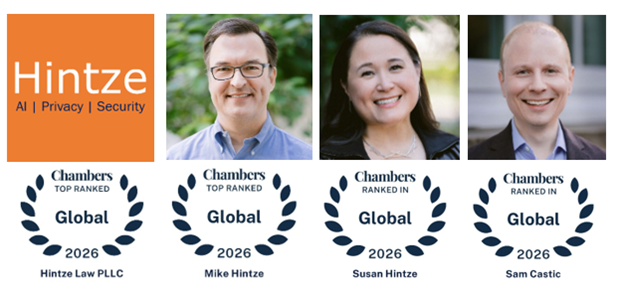Today, Hintze Law warmly welcomes Wen Tseng as our new Principal Privacy Consultant! For nearly two decades, Wen has been helping organizations develop and implement scalable and practical cybersecurity and privacy programs. He is a trusted advisor to organizations navigating the ever-evolving landscape of data protection and risk management, leveraging his expertise in assessing, building, and maturing GRC programs, transforming strategic vision into operational reality, and helping teams manage their compliance obligations under complex data protection and AI laws and regulations.
Before joining Hintze Law, Wen served as Director of Privacy at Microsoft, where he led the program operations team to ensure ongoing compliance with Data Subject Rights requests and supported Microsoft’s global marketing and sales activities with robust privacy reviews. Wen’s valuable ad tech and cybersecurity expertise helped navigate complex advertising technologies and privacy requirements while strengthening Microsoft’s privacy and security posture. Wen’s leadership extended to the Cloud Security Alliance as Interim Research Director, and earlier, Wen played a pivotal role at Washington Mutual Bank (now JPMorgan Chase), leading cybersecurity investigations and forensics, and also helped launch ShareBuilder, serving as its head of information security.
We’re thrilled to have Wen’s expertise and leadership on our team. Please join us in welcoming him to Hintze Law!
Hintze Law PLLC is a Chambers-ranked and Legal 500-recognized, boutique law firm that provides counseling exclusively on privacy, data security, and AI law. Its attorneys and data consultants support technology, ecommerce, advertising, media, retail, healthcare, and mobile companies, organizations, and industry associations in all aspects of privacy, data security, and AI law.










